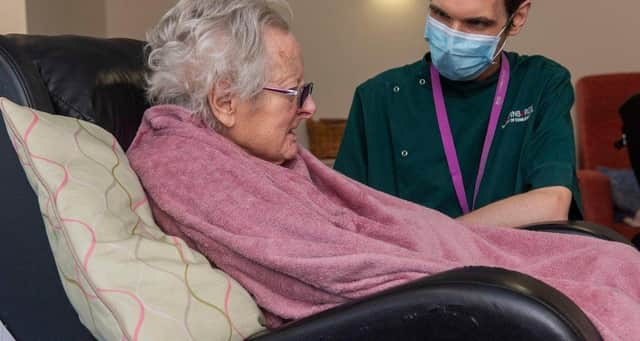Feeley Review sets out an ambitious framework for social care reform – John Kirk


The coronavirus has been a stark reminder of how much we rely on and need our NHS and social care services and the amazing people who make them work.
Taking over responsibility for all of these cherished public services and the workforce behind them is a daunting job at the best of times, as Mr Yousaf himself admitted. Far more so when they have been stretched to breaking point by a pandemic.
Advertisement
Hide AdAdvertisement
Hide AdThere is much to do but it is clear from the SNP manifesto and the wider public debate what is top of the to-do list – reform of our social care system.


Fortunately, Mr Yousaf’s predecessor Jeane Freeman has left a parting gift in the Feeley Review which sets out an ambitious framework to ensure Scotland once again leads the agenda on this important policy area.
While both Scotland and England face the same challenge of an ageing population and rising numbers of people with dementia, the UK government is lagging behind Holyrood in its approach. We know from evidence and experience that many people aged over 75, and the majority of those over 85, need some level of professional support in maintaining a reasonable quality of life.
There remains a gaping policy vacuum in England on how to meet this challenge and the recent Queen’s Speech was another missed opportunity to take it on. The commissioning and funding of care is left to cash-strapped local authorities, with users contributing to cost of services, even when they have very modest means.
Most people accept that the current pandemic has exposed a crisis in adult social care. While those in England wait for a coherent way forward, the Scottish government commissioned the Feeley review of adult social care, completed at pace and published in January – a quality report making very clear recommendations.
At its heart is the creation of a National Care Service and an evidence-based policy direction built on a rights-centred approach to care, based on the needs of individuals and encourages all groups involved in care to work in collaboration, all providers contributing to the National Care Service as a public good, and valuing the workforce through improved pay and conditions, with continuing career development and opportunities.
As the largest care home provider in Scotland, HC-One warmly welcomes this ambitious new agenda. We want to contribute positively as a privately-owned company committed to delivering a quality public service.
We recognise that we have not always performed as well as we should in delivering the high standard of care we aspire to but like many other organisations, we are learning appropriate lessons from our experience of the last 12 months.
Advertisement
Hide AdAdvertisement
Hide AdWe intend to be clear on our values, transparent on our organisation and explicit about the added value private capital contributes to a responsive public service. We are fully committed to developing and maintaining high quality standards, with the people we care for living as full and independent lives as possible. We are ready to contribute actively to a new framework, set by government and working with the Care Inspectorate and other partners to ensure better outcomes.
In working towards the kind of care system we would all want, HC-One believes we can lead on two vital policy areas: one in support of the people we will care for, and the other to enhance the status and skills of our colleagues who care for them directly.
We know that currently 90,000 people in Scotland are living with dementia. This number is likely to double by 2050. Many of these people will be affected by frailty, sensory impairments and co-existing illnesses, with a significant strain on their families.
As a result, we will have to adapt to meet the needs of people with dementia, many of whom will be highly dependent, while some will be living with complex needs and behaviours of concern. As a result, there will be a growing requirement for care homes to provide the appropriate level of skilled care and support to people with severe dementia.
Under the leadership of Professor Graham Stokes, a specialist in dementia care of more than 30 years, HC-One provides dedicated dementia care in 49 care homes across Scotland. We are now using our expertise in dementia to help improve provision of complex care, actively creating partnerships to share experiences, innovation and learning to the sector. We are all learning so much how best to support people living with dementia.
The other key area for better care is making sure those who provide it are properly rewarded, recognised and valued. HC-One is committed to improving the skills and knowledge our colleagues need to work with people living with dementia, including the development of dementia care coaches who will positively promote and influence best dementia care practice.
We are also investing in enabling colleagues to gain professional qualifications, tailoring learning programmes to priority needs, improving induction and developing leadership and talent. We want to release the potential of everyone who cares for others to ensure continuous service improvement and increasing job satisfaction. We must stand together in delivering these improvements, working with our partners in the trade unions.
Policy intentions must become a living priority. They need to demonstrate real improvements, sustained quality outcomes and the effective use of all our resources, human and financial, for the public good. A new policy framework in Scotland offers this opportunity and HC-One Scotland is up for the challenge.
John Kirk is HC-One managing director, Scotland
Comments
Want to join the conversation? Please or to comment on this article.